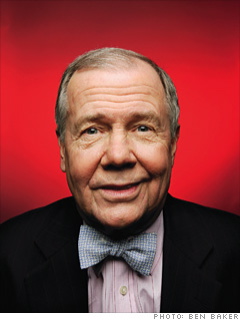 Jim Rogers is a successful author and investment guru from the old school. The “best advice” he ever received was to “read everything… (if) you read the annual report… you will have done more than 98% of the people on Wall Street … if you read the footnotes in the annual report you will have done more than 100% of the people.”
Jim Rogers is a successful author and investment guru from the old school. The “best advice” he ever received was to “read everything… (if) you read the annual report… you will have done more than 98% of the people on Wall Street … if you read the footnotes in the annual report you will have done more than 100% of the people.”
Rogers quickly “realized that most people don’t bother even doing the basic homework,” and that if he personally read “two or three years’ of reports — that I would know much more than others.” Other investors were impressed and everyone seemed to think he was “smart.” Jim took it to another level: he added to his list of reading not only the companies he was interested in investing in but also “their competitors’ annual reports, the trade journals, and everything that I could get my hands on.” (Fortune magazine, July 6, 2009, p. 46.)
You’d be surprised how many people get out of high school or college and stop reading, stop learning. They kick it into neutral and try to coast through the rest of their lives without really ever cranking up their brains. Or who believe that education and learning are something that happens in a structured environment with an instructor whose responsibility it is to make sure that you learn under the auspices of an institution that will have failed you if that instructor had not managed to pound the basics into your semi-conscious, quasi-willing brain.
Those who wish to make the most of their lives, those who wish to hone their gifts to their finest, practice life-long learning. The wisest among us proactively assume responsibility for our learning and often, to a large degree, are self-taught.


0 Comments